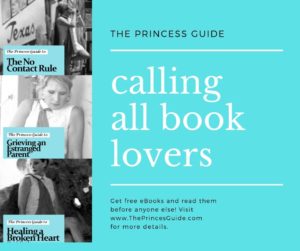All of Dallas — and much of the world — has been riveted by the murder trial of former Dallas police officer Amber Guyger. She was arrested and charged with murdering a man who she thought had broken into her apartment late one night in September 2018. It turns out that she was at the wrong apartment.
Early in the trial, it came out that she was having a sexual affair with her police partner who was a married man. Even though I rarely allow myself to watch the news anymore because it makes me feel so negatively, I just happened to watch her testimony in which Guyger said that she had ended the relationship because, “I knew it was morally wrong, and I didn’t want to hurt anyone.”
When it comes to infidelity — in a marriage or committed relationship — who is responsible? I have always said that it is the person in the marriage or committed relationship because that person is the one who made legal/spiritual/emotional vows and promises to another person. If they are unhappy in that relationship, then it is their responsibility to end that relationship before entering another one. We don’t often see that happen anymore, however.
While I heard each of them try to distance themselves from each other during this trial, this is a good time to take a look at signs of a healthy relationship. So, how do you know if your relationship is full of real love or if you may be in an unhealthy, enmeshed relationship? Dr. Tim Clinton offers these 10 Signs of an Unhealthy Relationship. Do you …
- Close your eyes to irresponsible behavior?
- Keep secrets or tolerate abuse?
- Sacrifice to cover up someone else’s mistakes?
- Cater to a lazy person’s whims?
- Cave in to an angry person’s demands?
- Make excuses?
- Justify bad behavior?
- Accept the blame for something you never did?
- Enable an addiction?
- Lie to yourself or others?
“If you answered ‘yes’ to many of these statements, it’s likely that you may be stuck in an enmeshed relationship,” he wrote. “These relationships leave a legacy of heartbreak and manipulation. But that legacy can be changed if we are willing to open our eyes and take an honest look at ourselves and our relationships.”
Maybe it’s the Mental Health Professional in me, but it appeared by Guyger’s statement about her relationship with her partner that she was taking the blame which is No. 8 on this list. I can understand this behavior because I used to display it all the time in my relationships. I’m a natural peacemaker, and I wanted peace in my relationships. So, I often took the blame when I was not to blame. A person who truly loves themselves first (the topic of the next book I’m releasing available for preorder on my website) sets and enforces healthy boundaries and doesn’t accept blame that is not theirs.
Cheating on a partner or spouse is classically and purely ego — or Edging God Out, as Dr. Wayne Dyer often said. The key to overcoming the ego is love — pure, true, real love. It makes sense with the Bible informing us that God is love.
“Lovingness is a feature of your natural state, and your ego isn’t part of that state,” Dr. Dyer wrote in his book Being in Balance. “Ego dominates because you’ve separated yourself from your God-self, the loving self that came here from a place of perfectly Divine unconditional love. You’ve carried this ego idea of your own self-importance, your need to be right, for so long that you’ve deluded yourself into believing that the ego-self is who you are … By allowing this illusion to be the dominant force, you’ve created, through your ego-centered self, a heavy imbalance in your life.”
I have to keep going back to our responsibility in our lives — we are co-creators with God and can manifest anything we become focused on. I love what Dr. Sue Morter has to say about this, “Your life is YOUR movie. You are writing the story, playing the part of the main character, and have the power to decide and direct how everything will go.”
I’m so excited to tell you about her new eBook The Top 3 Mistakes That Keep You from Fulfillment & Flow, where she shares her proven system that heals lives on every level — mentally, emotionally, physically and spiritually.

If you’ve been seeking a life where you feel complete freedom, total fulfillment and the joy of living in the flow, then this is eBook is for you.
In case you don’t know her, Dr. Sue is a renowned international speaker and founder of the Morter Institute for Bio-Energetics, an organization committed to teaching individuals self-healing techniques and a new approach to life based on Quantum Science. She is the host of Healing Matrix on Gaia TV. She has also been featured in several documentary films, including The Opus, The Cure Is…, Discover the Gift, and Femme. Dr. Sue is the author of The Energy Codes ®: A 7-Step System to Awaken Your Spirit, Heal Your Body, and Live Your Best Life.
Being in a broken or unbalanced relationship can affect every aspect of your life … I know because I wrote my first book about it! Dr. Sue’s eBook will help you begin the healing process, and it’s only free for a limited time. So, make sure you get your copy now and learn the Top 3 Mistakes That Keep You From Fulfillment & Flow.
If you enjoy this content and would like to read Senée’s books for free, get on the Royal Team. For more information on how to have successful relationships and peace of mind, check out the bookstore today!


